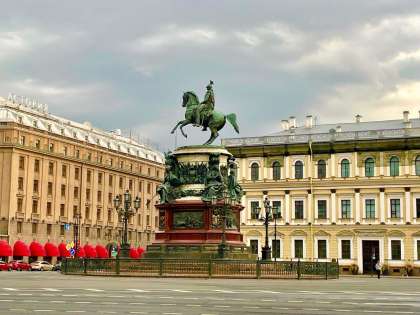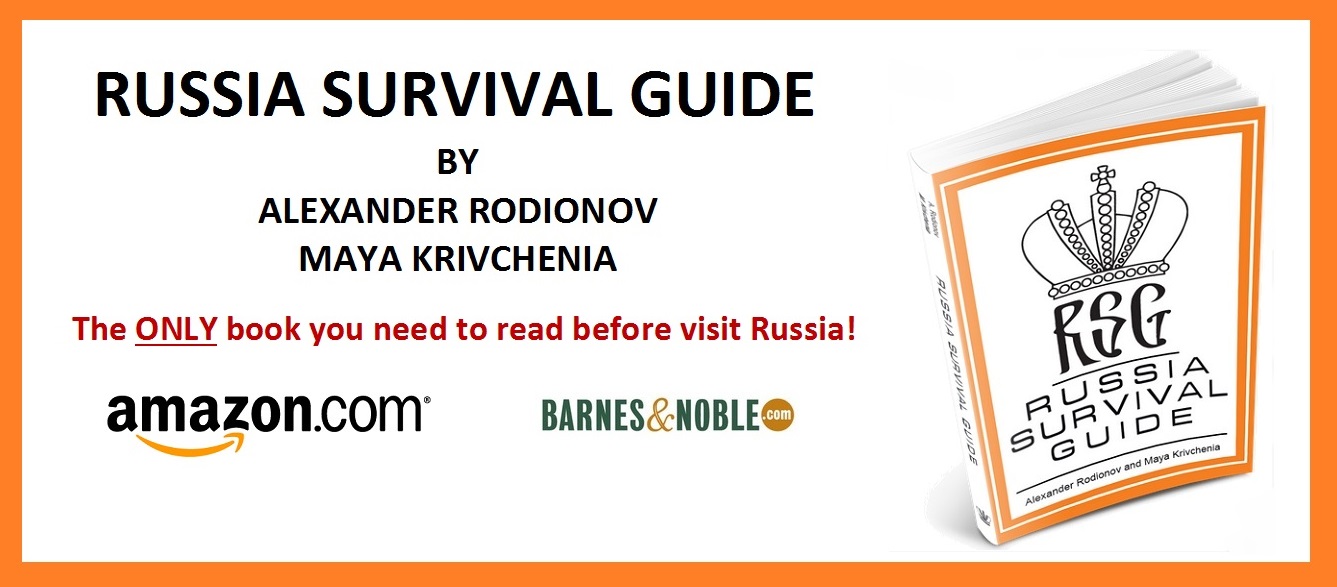Russian People and Its History
Russian people respect and know their history very well. During secondary school, we study history quite deeply during those seven years. Plus, basically, all our holidays (like Victory Day, Independence Day, former revolution day, etc.) are connected with Russian history and well promoted by the government. So the Russian people are very proud of their history and culture, especially about the way the nation managed to survive all the historical events during the last century. Russians, in general, are very patriotic, even if sometimes it looks like they are not. Russians can complain about recent political or economic situations, but behind this façade and political bravado, you will find very strong and deep patriotic feelings. You should know that, while complaining to one another about the situation in Russia, Russians will never accept criticism from foreigners. For us, only people who went through all the tragedies we have had can judge us.
Did you know that almost two million Russians were killed and that almost three million more were injured during the First World War? What was the damage to Russian economy and culture brought on by the Bolshevik Revolution of 1917? How many intelligent and progressive people were killed or were forced migrate during those years? How many people were killed in the gulag during Stalin’s regime of terror? (Almost twenty million were prisoners and almost three million were killed there.) What losses did we suffer during the Second World War? (Almost twenty-three million killed and nine million injured.)
Don’t forget that Russia managed to rise up after the Second World War to survive the perestroika and the collapse of the Soviet Union. And people who lived throughout the soviet regime, shut off from the world, managed to survive through the «crazy nineties» with its privatization and reconstruction. All of these people are our grandparents, mothers, and fathers who raised us, who remember all these horrible times. Of course, having such a background, modern Russians has become different from the US and Europe, who have suffered different and fewer tragedies.
Therefore, in order to understand Russian people and their strange form of patriotism, it is a good idea to learn more about our history and you will better understand what a huge amount of progress has happened in the country and inside of people’s minds in just twenty years. To help with a brief knowledge of history, I have included you a short list of important historical events that have taken place in Russia just in the twentieth century:
1905—National uprising against czarist rule, which came to be called the rehearsal of the 1917 revolution. It fastened the establishment of a national parliament (Duma) in 1906.
1914—World War I begins. It brought enormous losses, food shortages, and widespread unrest. Saint Petersburg was renamed Petrograd to sound less German.
1917—February revolution overthrows the czarist regime. Later, during the October uprisings the people overthrow the new provisional government, and the Bolshevik Party takes control.
1918—The Bolsheviks execute Czar Nicholas II and his family and spend the next four years fighting a devastating civil war.
1921—In response to the opposition, a less extreme economic policy is introduced, the New Economic Policy (NEP). Vladimir Lenin moves the capital back to Moscow.
1924—Lenin dies and Petrograd was renamed to Leningrad. Josef Stalin takes full control of the Soviet Union.
1934—Beginning of the worst period of Stalin’s terror that lasted until 1941. Millions of people were killed or sent to the gulag.
1941—Germany attacks Russia on June 22 that starts the Great Patriotic War. After sustaining heavy losses, Russia begins to push German forces back in 1943.
1945—Germany surrenders in May 1945. 1953—Stalin dies. In 1954, Khrushchev succeeds him.
1957—The first satellite (Sputnik) is launched. In 1961 Yuri Gagarin becomes the first man in space.
1962—The Cold War reaches its height with the Cuban missile crisis in October.
1985—Gorbachev becomes general secretary of the Communist Party and calls for reforms including perestroika (restructuring) and glasnost (openness).
1991—Yeltsin becomes the first elected president of Russia in June. One by one, the Baltic states declare their independence, and in December, Yeltsin announces that the USSR no longer exists and proclaims the establishment of a new confederation called the Commonwealth of Independent States (CIS)
Read more in later posts. Or in our book.
Tsar Events DMC & PCO has become first DMC who wrote book-instruction for tourists and professional travel planners who are going to Russia!
New book offers a mesmerizing slice of life in Russia. Alexander Rodionov & Maya Krivchenia shares an informative and enjoyable guide to enjoying the historical and cultural wealth of the world’s largest country.

